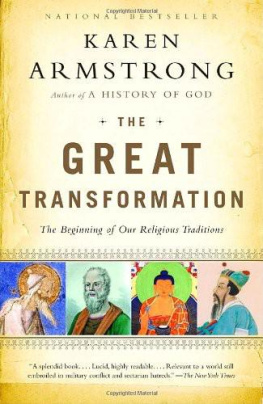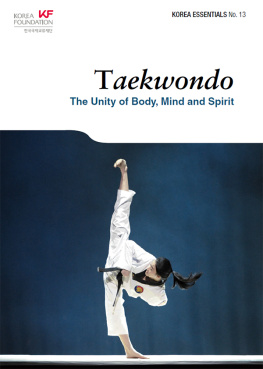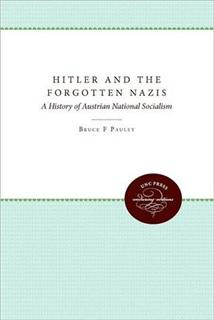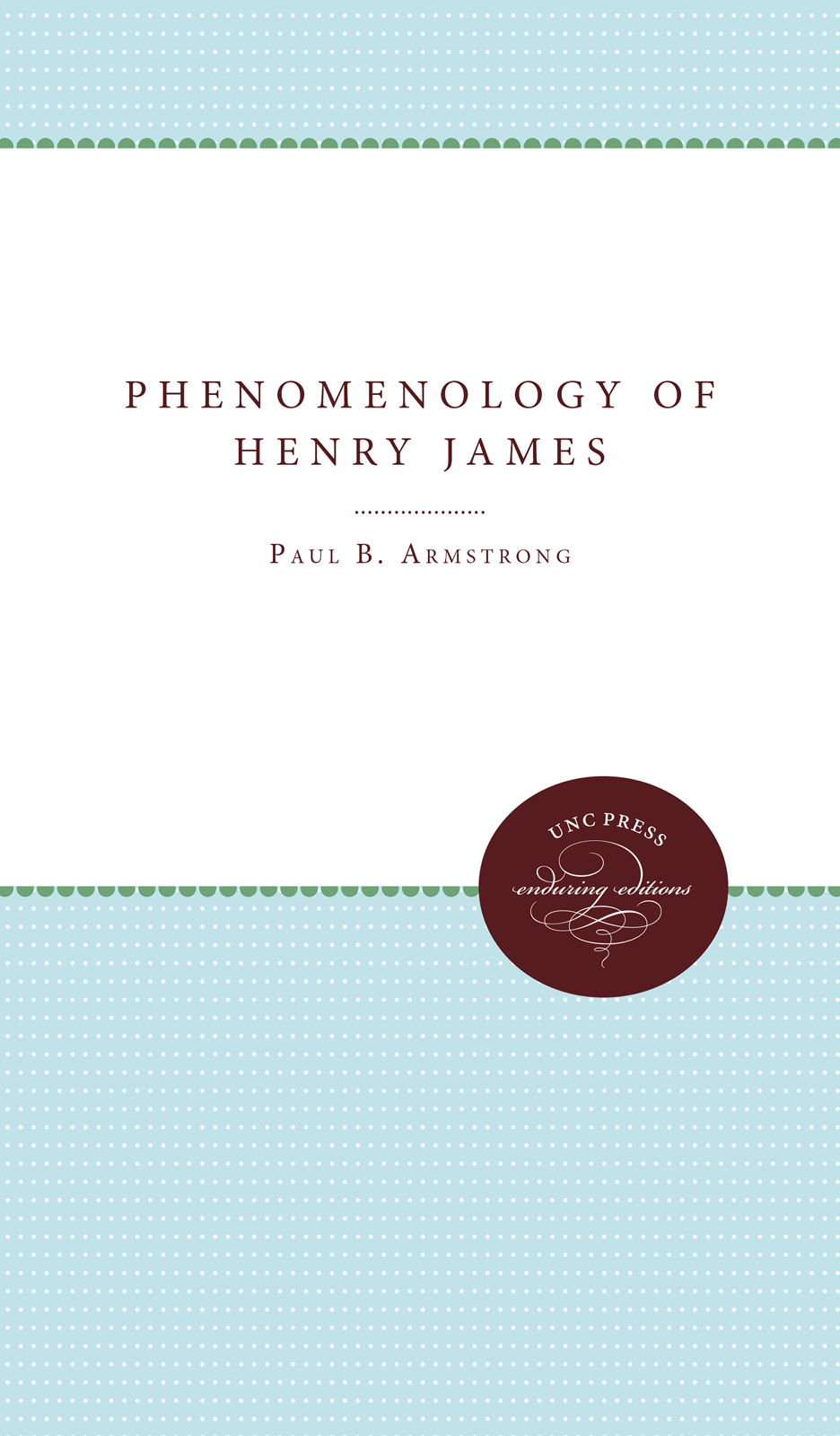Preface
This book offers an interpretation of Henry James from a phenomenological perspective. But this interpretation suggests in turn that Jamess own perspective is essentially phenomenologicalthat his understanding of the process of knowing, the art of fiction, and experience as a whole coincides in important ways with the standpoint of phenomenology. This convergence between art and philosophy indicates that phenomenological thought is less foreign to our countrys cultural and intellectual heritage than most critics and literary historians realize. As we shall see, both William and Henry James rank as important American participants in the phenomenological tradition.
The main purpose of my study is to shed new light on an issue with a long and distinguished history in James criticismthe relation between his fascination with consciousness and what is commonly called his moral vision. An important justification for invoking phenomenology to interpret James is that it provides a conceptual framework that can illuminate the connections between these two dimensions of his fiction. Guided by phenomenologys theories about the workings of consciousness and the structure of existence, I have identified and analyzed five major aspects of experience that, together, map Jamess understanding of human beingthe impression as a way of knowing, the imagination, freedom, personal relations, and the politics of the social world. The network of connections between these various categories helps to explain the interdependence of the epistemological and moral explorations that Jamess art undertakes. From the early Roderick Hudson to his final masterpiece The Golden Bowl, these five aspects of experience are the underlying bases on which his house of fiction rests.
One of my secondary goals is to provide an introduction to phenomenology for the humanist who may know James but who is less well acquainted with contemporary philosophy.
The question What is phenomenology? is difficult to answer in part because no single credo contains the phenomenological perspective. My book offers a phenomenological perspective on Jamess achievement, but this many-faceted school could sanction other approaches as well. Phenomenology is less a monolithic entity than a lively family with substantial differences between its members. I point out their disagreements in the course of my interpretationfor example, the dispute between Sartre and Heidegger about the basic nature of personal relations that I describe in Chapter 5and I try to make use of them in delineating the precise shade of Jamess phenomenological significance. But I also hope to develop a coherent picture of the underlying assumptions that the members of the phenomenological tradition share as participants in a recognizable style of thought.
Generally speaking, the philosophical assumptions of phenomenology lead to two different kinds of theories about literature. On the one hand, theorists like Ingarden, Sartre, Poulet, and Iser approach the literary work by studying its relation to consciousness. Although the work is not reducible to the motives of its author, it nevertheless depends for its existence on the acts of consciousness that constitute it. These acts lie dormant in the work, hibernating and waiting for the reader to bring them to life by lending them his or her subjectivity. Poulet seeks to unite himself with the subjectivity present in the work by going back, within the sphere of the work, from the objective elements systematically arranged, to a certain power of organization inherent in the work itself, as if the latter showed itself to be an intentional consciousness determining its arrangements and solving its problems.
Although I refer to many of these theorists, my approach to James is not identical with any one of their methods. My study belongs first of all to the grand old tradition of cultural criticism. By employing the central concepts of phenomenology to clarify the relation between consciousness and moral vision in James, I have undertaken a comparative study of philosophy and literature in the spirit of the many previous investigations of his work that have placed him in the context of such intellectual figures as his brother William, the British empiricists, Swedenborg, and Nietzsche. The goal of such comparative analysis is twofold. Concepts borrowed from a nonliterary context can sometimes make possible a more penetrating interpretation of a literary issue than purely intrinsic study might allowin the case of James and phenomenology, a deeper understanding of his epistemology and its relation to his ethics. Comparative studies also further the work of cultural history; identifying Henry James as a literary ally of the phenomenological tradition illuminates an important, hitherto insufficiently recognized connection between modern thought and literature.
The specifically phenomenological components of my method have to do with both consciousness and Being. Because of their importance to the shape and structure of his world as a novelist, the five aspects of experience that I have identified qualify as the intentional foundations of his authorial consciousnessa term I explain in Chapter 1. It refers, briefly, to the characteristic tendencies, assumptions, and rules of operation that govern the creation of meaning in a writers fictional universe. The impression, the imagination, freedom, personal relations, and the politics of daily lifethese are the defining preoccupations of Jamess consciousness as a creator. But they are also demarcations of mans being. In reading Jamess novels as testimony to his understanding of the structure of experience, I follow Ricoeurs suggestion that texts speak of possible worlds and of possible ways of orienting oneself in those worldsworlds that disclose possible modes of being,... symbolic dimensions of our being-in-the-world. The worlds projected in Jamess works are occasions for explorations of the essential constituents of mans experience. James is not a poet of Being in Heideggers almost spiritual sense; more secular in orientation, and with more immediate relevance to everyday life, he is a novelist of experience. His approach to man is ontic rather than ontological, existential rather than metaphysical.
I have chosen to read a few texts closely instead of sketching interpretations for all or most of Jamess works. This decision reflects in part a desire to respect the integrity of the world of each novel and to follow carefully its process of disclosure. Close reading of selected works also minimizes the risk of fitting the text to the context, a danger that comparative approaches must always try to avoid. Nevertheless, I have chosen my texts and themes so that they might suggest how a reading of his entire canon would follow from the view of James that this book outlines. For example, I have attempted to make diachronic inclusiveness one of my principles of selection by dealing with texts from each decade of Jamess mature artistic life (Roderick Hudson from the 1870s, The Portrait of a Lady and The Art of Fiction from the 1880s, What Maisie Knew and The Spoils of Poynton









